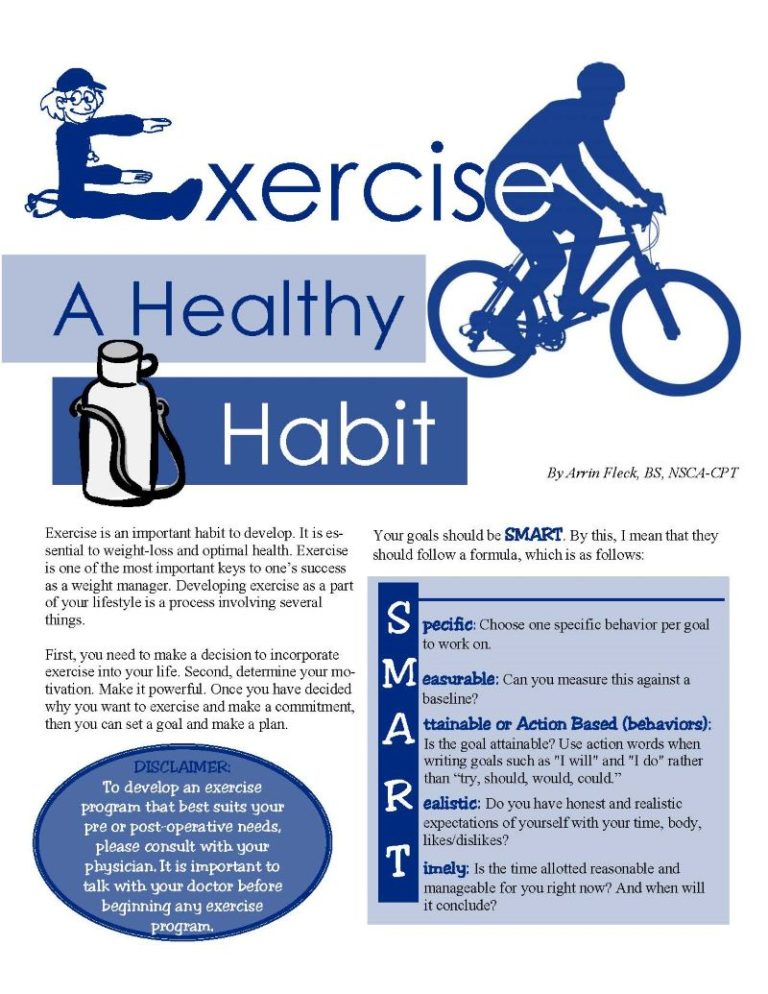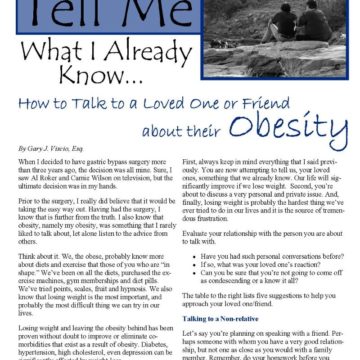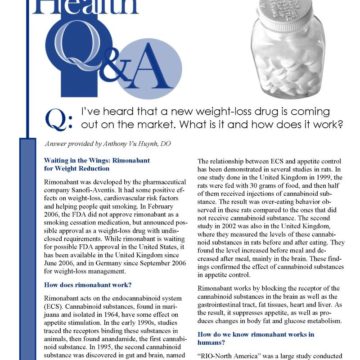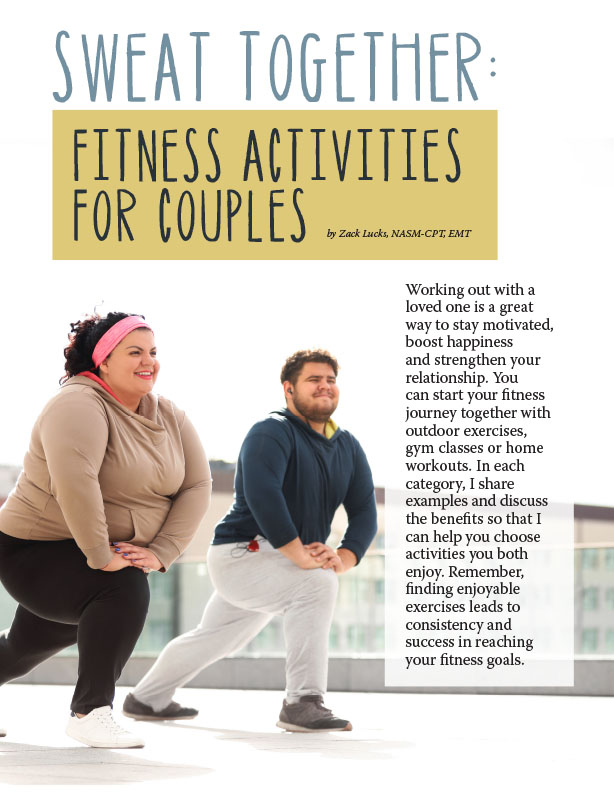Exercise – A Healthy Habit


By Arrin Fleck, BS, NSCA-CPT
Fall 2006
DISCLAIMER: To develop an exercise program that best suits your pre or post-operative needs, please consult with your physician. It is important to talk with your doctor before beginning any exercise program.
Exercise is an important habit to develop. It is essential to weight-loss and optimal health. Exercise is one of the most important keys to one’s success as a weight manager. Developing exercise as a part of your lifestyle is a process involving several things.
First, you need to make a decision to incorporate exercise into your life. Second, determine your motivation. Make it powerful. Once you have decided why you want to exercise and make a commitment, then you can set a goal and make a plan.
Your goals should be SMART. By this, I mean that they should follow a formula, which is as follows:
Specific: Choose one specific behavior per goal to work on.
Measurable: Can you measure this against a baseline?
Attainable or Action Based (behaviors):Is the goal attainable? Use action words when writing goals such as “I will” and “I do” rather than “try, should, would, could.”
Realistic: Do you have honest and realistic expectations of yourself with your time, body, likes/dislikes?
Timely: Is the time allotted reasonable and manageable for you right now? And when will it conclude?
Then use the FITT principle to develop your plan.
Frequency: How often?
Intensity: What percentage of your target heart rate do you exercise? (This is not necessary when beginning an exercise program.)
Type: What mode of exercise are you using (walk, swim, aerobics, bike, dance, weights, yoga, Pilates, etc.)?
Time: How long can you exercise per day? (This does not have to be all in one session; time can be broken up over the day.)
Now let us look at how to put these two principles together and start our plan. Here are some examples of poor and well-written goals:
Poor goals:
Increase cardiovascular exercise.
Better: I will walk five days per week for 30 minutes.
Lose weight.
Better: Lose 10-15 pounds by walking four days a week for 30 minutes a day.
SMART goals:
- I will increase my exercise by walking three times a week for 15 minutes each time.
- I will relax in the hot tub at the gym for 10 minutes after my two workouts this week.
- I will take the stairs down once a day at work, every day this week.
The easiest program for most people to begin is a walking routine. Realistically, any movement that you do is better than none. Do what works for you right now in your life. Everyone is different and has different likes, dislikes and abilities.
A good tool to have is a pedometer, it is very motivating and helps to keep you on track with your daily activity level.
For those considering surgery, it is best to begin this process prior to your procedure. By doing so, you prepare for life after surgery, lose weight, become healthier and make the recovery process easier and sometimes faster.
Maintain your program up until surgery and then begin again right after surgery. There are a few limitations depending on your specific procedure. Check with your surgeon for specifics.
In general, you should resume a walking routine immediately after surgery. Walking can be outside, on a treadmill (no incline), at the mall and walking videos. Most can ride a stationary bike as well. Some other appropriate exercises are:
- Seated knee marches
- Seated knee extensions (kicks)
- Pillow squeeze between knees
- Standing side leg lifts
- Toe/heel raises
- Arm circles
- Neck stretches
Remember these few things about exercise: make it simple, make it realistic, make it happen and most importantly make it fun! The most important commitment you make is to your health and wellness!
About the Author:
Arrin Fleck, BS, NSCA-CPT, is an exercise physiologist educator at Scottsdale Healthcare and Scottsdale Bariatric Center in Scottsdale, AZ. She was recently a presenter at the American Society for Bariatric Surgery annual conference.
by Yelena Kibasova Spring 2024 The fitness world is evolving, with new trends and innovations that promise…
Read Articleby Zack Lucks, NASM-CPT, EMT Winter 2024 Working out with a loved one is a great way…
Read Articleby Nina Crowley, PhD, RD (with Inspiration from Shawn Cochran) Winter 2024 Dating, no matter your age,…
Read Article









